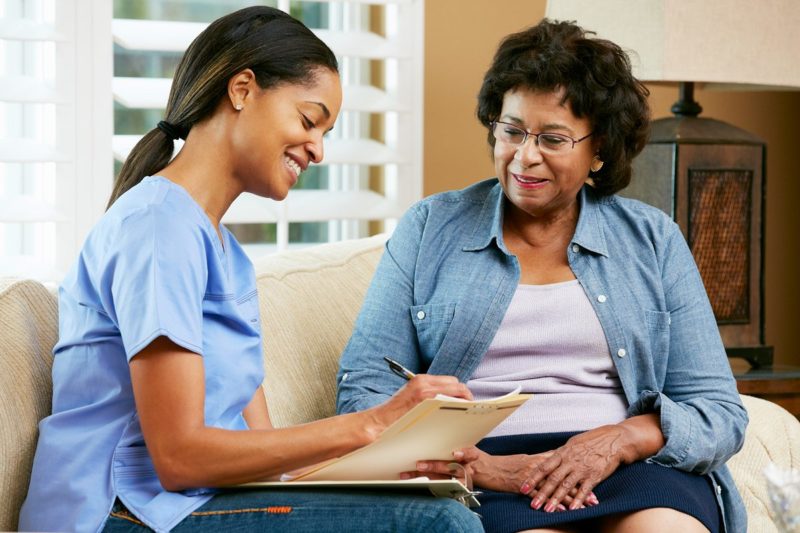This Week in Sex: A Nursing Home With a Healthy Attitude Toward Sex
A nursing home understands that its elderly residents are still sexual beings; New York City is amping up its youth sexual health outreach with emojis of eggplants and monkeys; and if forced to choose between eating and sex, a good number of people pick food.

This Week in Sex is a weekly summary of news and research related to sexual behavior, sexuality education, contraception, STIs, and more.
Sex Is Not Just for the Young
The New York Times recently profiled a nursing home with a sex-positive attitude for its residents. The Hebrew Home at Riverdale adopted its “sexual expression policy” in 1995 after a nurse walked in on two residents having sex. She asked her boss, Daniel Reingold, what she should do. He said, “Tiptoe out and close the door.”
Reingold, the president of RiverSpring Health (which runs the nursing home), said that aging includes a lot of loss—from the loss of spouses and friends to the loss of independence and mobility. But he believes the loss of physical touch and intimacy does not have to be part of getting older.
The policy acknowledges that residents have the right to seek out and engage in consensual acts of sexual expression with other residents or with visitors. The policy ensures that staff understand that their role is not to prevent sexual contact. In fact, some of the staff like to play cupid for residents. Audrey Davison, an 85-year-old resident, said that the staff let her sleep in her boyfriend’s room, and one aide even made them a “Do Not Disturb” sign for his door. She added: “I enjoyed it and he was a very good lover.”
Still, there are complicating factors to dating in nursing homes or assisted-living facilities. Some residents may be married to people who don’t live in the facility, and others may be suffering from memory loss, dementia, or Alzheimer’s, which can raise issues of consent. Hebrew Home’s policy states that Alzheimer’s patients can give consent under certain circumstances.
Though not all nursing homes have formal policies about sex, many acknowledge that their residents are or want to be sexually active and are working to help residents have a safe and consensual experience. Dr. Cheryl Phillips, a senior vice president at LeadingAge, an organization which represents nursing homes and others who provide elder care, also told the New York Times that this generation of older adults is different: “They’ve been having sex—that’s part of who they are—and just because they’re moving into a nursing home doesn’t mean they’re going to stop having sex.”
Of course, not all residents are lucky in love when they move in. Hebrew Home says that about 40 of its 870 residents are in relationships. Staff are trying to help the others. They set up happy hours, a prom, and have started a dating service called G-Date (for “Grandparent Date”). So far it hasn’t been too successful in making matches, but the staff is convinced that someday their efforts will pay off with a wedding.
Can Emojis Connect Youth to Sexual Health Services?
New York City’s public hospital system, known as Health & Hospitals, provides confidential sexual health services—including pregnancy tests, contraception, and tests for sexually transmitted diseases (STDs)—for young people 12 and older regardless of their ability to pay, immigration status, or sexual orientation. Health & Hospitals served 152,000 patients last year, but its leaders think it could do even more if more young people were aware of the services offered.
As a way to speak the language of young people, Health & Hospitals launched a campaign starring emojis in July.
The emojis are expected to reach 2.4 million young people in New York City through social media including Facebook and Instagram. The emojis include an eggplant, a monkey covering his eyes, and, of course, some birds and bees. The online ads read, “Need someone to talk to about ‘it’?”
When young people click on the emojis, they will be taken to the Health & Hospitals youth website, which explains available services and how to find accessible providers.
Dr. Ram Raju, president and CEO of NYC Health & Hospitals, said in a press release that the organization provides nonjudgmental services to youth: “Whether it’s birth control, pregnancy testing, emergency contraception or depression screening, the public health system has affordable services in local community health centers, where we speak your language, understand your culture and respect your privacy.”
But some worry that these emojis are confusing. Elizabeth Schroeder, a sex educator and trainer, told the New York Times that while she applauded the effort, she questioned if the images chosen were the best to convey the message.
We here at This Week in Sex have to agree and admit the images confuse us as well. The monkey is cute, but what does it have to do with STDs?
Choosing Between Appetites, Many Pick Food
Good food or good sex? These two sources of pleasure are rarely at odds with each other, but if they ever are, which would you choose?
A new survey, by advertising agency Havas Worldwide, posed this very question to almost 12,000 adults in 37 countries across the globe. The results show that about half of adults (46 percent of men and 51 percent of women) believe that food can be as pleasurable as sex. And one-third would choose a great dinner at a restaurant rather than sex; women were more likely to make this choice (42 percent compared with 26 percent of men).
Millennials were also more likely to make this choice than those slightly older Gen-Xers (35 percent to 30 percent). Of course, it’s hard to tell whether this says more about their sex lives or their eating habits.

